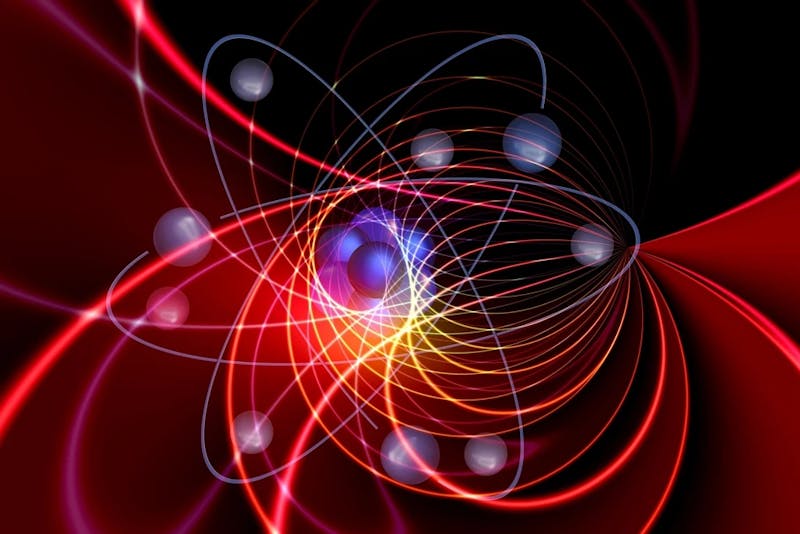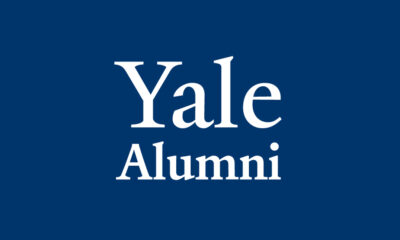Science
Nobel Prize in Physics 2025 Honors Breakthroughs in Quantum Mechanics

The 2025 Nobel Prize in Physics has been awarded to John Clarke of the University of California, Berkeley, Michel H. Devoret from Yale University and the University of California, Santa Barbara, and John M. Martinis of the University of California, Santa Barbara, for their groundbreaking work on “the discovery of macroscopic quantum mechanical tunneling and energy quantization in an electric circuit.” This year also marks the International Year of Quantum Science and Technology, celebrating a century since the development of modern quantum mechanics.
Understanding quantum mechanical tunneling requires grasping the foundational concepts of quantum physics. Unlike classical particles, which have a defined position, quantum particles exist as probabilities. This principle is illustrated by Schrödinger’s equation, which indicates that there is a chance a particle can pass through a barrier even if it lacks the necessary energy. Quantum tunneling allows particles to traverse barriers as if they were not there, akin to walking through a wall.
Previously, the Nobel Prize was awarded in 1973 for the discovery of quantum tunneling at the level of single particles. While this work laid the groundwork for advancements in quantum computing and technologies such as scanning tunneling microscopes, it lacked broader applications. The research by Clarke, Devoret, and Martinis, published in 1985, expanded this concept by demonstrating quantum tunneling in collections of particles, specifically currents of millions of electrons, marking a significant leap to macroscopic phenomena.
Implications for Technology and Industry
The discovery of quantum mechanical tunneling at this macroscopic scale opens new avenues for technological advancement. Quantum computers, known for their ability to perform tasks much faster than traditional computers, stand to benefit immensely. The applications of quantum tunneling in electrical currents could enhance the performance of these computers, allowing them to tackle complex calculations more efficiently.
Furthermore, the implications of this discovery extend to various fields, including quantum cryptography, which promises highly secure communication methods, and quantum simulations, which model intricate medical, chemical, and biological systems. These technologies are likely to gain traction across multiple industries, from semiconductor manufacturing to finance and logistics.
The excitement surrounding this achievement resonates within the academic community. Peter Seelman, a physics major at the Whiting School of Engineering, shared his enthusiasm in an email to The News-Letter. “Having just given a presentation on the math behind the prize for a physics class, it still feels like magic, but it’s justified magic,” he remarked. “The laureates ran experiments that took this quantum phenomenon and expressed it in a macroscopic circuit large enough to be held in your hand. I love physics because it’s the study of the magic behind the universe, and experiments like these that examine the ‘why’ and the ‘how’ of that magic are doubtless worthy of this great honor.”
The recognition of Clarke, Devoret, and Martinis not only highlights their significant scientific contributions but also heralds the onset of a new era in innovation driven by quantum mechanics. As the world celebrates their achievement, the potential for future advancements in technology and science continues to grow, promising to transform how we understand and interact with the universe.
-

 Technology5 months ago
Technology5 months agoDiscover the Top 10 Calorie Counting Apps of 2025
-

 Health2 months ago
Health2 months agoBella Hadid Shares Health Update After Treatment for Lyme Disease
-

 Health3 months ago
Health3 months agoErin Bates Shares Recovery Update Following Sepsis Complications
-

 Technology4 months ago
Technology4 months agoDiscover How to Reverse Image Search Using ChatGPT Effortlessly
-

 Technology1 month ago
Technology1 month agoDiscover 2025’s Top GPUs for Exceptional 4K Gaming Performance
-

 Technology2 months ago
Technology2 months agoElectric Moto Influencer Surronster Arrested in Tijuana
-

 Technology5 months ago
Technology5 months agoMeta Initiates $60B AI Data Center Expansion, Starting in Ohio
-

 Technology5 months ago
Technology5 months agoRecovering a Suspended TikTok Account: A Step-by-Step Guide
-

 Health4 months ago
Health4 months agoTested: Rab Firewall Mountain Jacket Survives Harsh Conditions
-

 Lifestyle5 months ago
Lifestyle5 months agoBelton Family Reunites After Daughter Survives Hill Country Floods
-

 Technology4 months ago
Technology4 months agoHarmonic Launches AI Chatbot App to Transform Mathematical Reasoning
-

 Technology3 months ago
Technology3 months agoUncovering the Top Five Most Challenging Motorcycles to Ride


















